

The Rajiv Gandhi Institute for Contemporary Studies was established in 1992 as a knowledge and policy affiliate of the Rajiv Gandhi Foundation. RGICS carries out research and policy development on contemporary challenges facing India on the following themes:
A just social order – local, national and global — based on the values that inspired India’s freedom struggle and are codified in the Indian Constitution:
Equality of status, opportunity and of political, economic and social rights; liberty of thought, expression, belief, faith and worship; democracy; secularism; socialism; fraternity assuring the dignity of the individual and the unity and integrity of the nation; world peace and fellowship.
Enhancing the effectiveness of democratic institutions based on constitutional values, to help make governance an instrument of all-round development,
This theme explores through research and policy analysis, various contemporary dynamics related to issues of justice, equality, liberty and fraternity and their intersection with class, caste, gender and other marginalized sections of society like dalits, adivasis and minorities.
This theme also delves into the consequences of communal tension and majoritarianism on both the social and economic fabric of a country.
In the long term, the institutions of a country are perhaps the greatest determinant of its growth and development. Institutions are the “rules of the game in a society”; they determine incentives and outcomes in all spheres of human life. The institutions of governance of our country embody norms such as democracy, rule of law, citizenship rights, accountability and transparency of governance.
In this theme, we focus on how institutions of the state in India can work better to promote development. Our sub-themes under this theme are:
In our country, social inequalities have always been salient, but with higher growth, economic inequalities have also increased. Thus, growth has to be accompanied by the generation of high-quality employment. In this theme, the focus is on how public policy can enable widespread growth, especially in those sectors that can create employment at scale. There are three sub-themes under this theme:
This theme focuses on contemporary issues related to climate change, sustainability and natural resources especially water, forest and land. Our work on these issues attempts to analyze policies and their implementation from people’s perspective, their experiences and learning. Under this thematic area we focus especially on following three sub themes
In an increasingly connected world, the nation-state is less sovereign today that it was ever before. Some of the most consequential issues today – climate change, terrorism, international trade, or global violations of human rights – cannot be dealt by any country in isolation. Under this theme, we work on how India can engage deeply with the rest of the world to protect its interests and to promote global peace and security. We focus especially on these three sub-themes:
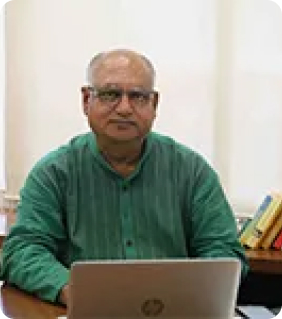 Mr. Vijay Mahajan
Mr. Vijay MahajanVijay is an internationally known Indian rural development professional, social entrepreneur and a policy analyst. He is the founder of reputed organizations such as PRADAN and the Basix Social Enterprise Group. He has also served on the Insurance Regulatory and Development Authority of India, the Rangarajan Committee on Financial Inclusion and the Raghuram Rajan Committee on Financial Sector Reforms.
He has published over 30 papers in prestigious Indian and international journals, contributed chapters in 25 academic books and has authored over 100 papers/articles in the area of rural development, livelihood promotion and employment, microfinance, financial inclusion, social innovations and entrepreneurship.
He is an alumnus of Indian Institute of Management – Ahmedabad and Indian Institute of Technology – Delhi, and was mid-career Fellow at the Princeton University, USA.
 Mr. Jeet Singh
Mr. Jeet SinghJeet Singh leads research studies commissioned by RGICS. He has been active as a researcher in the policy area of management of natural resources (water, forest and land), environmental governance, common property resources, communities and conservation, conservation linked livelihoods, biodiversity conservation and community governed forests. Before joining RGICS in 2013 he worked with a number of NGOs and research organizations including ABC-Active Aid, Sweden; National Centre for Advocacy Studies and Indian Social Institute.
Jeet holds post graduate’s degree in Sociology from HNBG University and P.G. Diploma in Environmental Law and Policies from National Law University, Delhi. Jeet has been awarded with ‘Gandhian Eco-Philosophy Fellowship’ by the Department of Environment, Government of Madhya Pradesh and Sahapedia-UNESCO fellowship by Sahapdedia, Delhi. With his keen interest in interlinkages of culture and conservation, he has co-authored a book ‘Lok Nanda’, describing and analyzing cultural and traditional ecological dimensions of a sub culture in Uttarakhand.
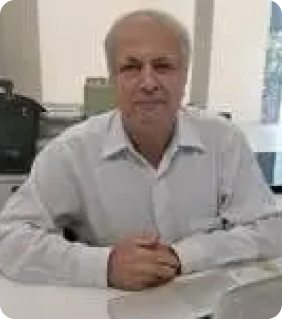 Prof. Ravinder Kumar Zutshi
Prof. Ravinder Kumar ZutshiProf. Ravinder Kumar Zutshi has held professorial appointments at San Diego State University, IIM Lucknow, Nanyang Technological University, Singapore and Long Island University, New York. Moreover, he has been visiting professor at IIT Delhi and a number of European Universities including, Faculty of Economics, University of Ljubljana, Slovenia and Eindhoven Technological University, Holland. As an academician he teaches and publishes extensively on Strategy, International Business, Business and Society and Entrepreneurship. Prof. Zutshi was Managing Editor of Journal of enterprising Culture and has been on the Editorial Board of Journal of Small Business Management and International Journal of Technological Management.
Along with his long career as academician, he has also contributed significantly in formation of public policies in India on number of issues including Public Enterprises, Industrial Training, Rural Labour, Industrialization in Eastern Uttar Pradesh, Youth Employment, International Knowledge Network and MSME Clusters by his direct engagements with erstwhile Planning Commission of India, Government of Uttar Pradesh, Government of Madhya Pradesh and National Industrial Development Cooperation, National Productivity Council. Moreover, he has advised a number of global financial institutions such as the World Bank, IDBI, Exim Bank, Singapore Technologies on subjects such as impact of global crisis on youth employment in India.
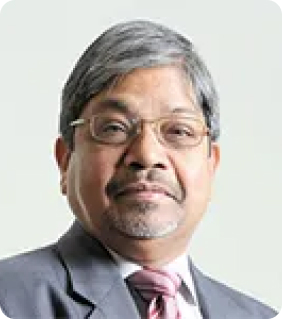 Dr. Bhalchandra Mungekar
Dr. Bhalchandra MungekarDr Mungekar is an Economist, Educationist, Social Worker and a former Rajya Sabha member. He specializes in agricultural economics and is an expert on Dr. B. R. Ambedkar. He has been a Vice-Chancellor of the Mumbai University and has served in the Planning Commission, the Agricultural Price Commission of India. He has also been the Chairman and President of Indian Institute of Advanced Study, Simla.
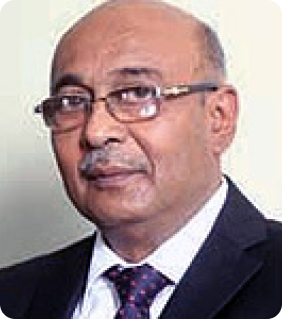 Dr. Somnath Ghosh
Dr. Somnath GhoshSomnath recently retired as Professor & Founding Dean (Academics) at Indian Institute of Management, Kashipur. He held regular faculty positions at three other Indian Institutes of Management at Lucknow, Bangalore and Indore, as well as other management institutes. He worked as a Consultant to the World Bank, Government of India, large corporate organizations like NTPC, Coal India, Union Carbide and social enterprises like Mahila Abhivruddhi Society, Andhra Pradesh (APMAS), and the Rashtriya Gramin Vikas Nidhi (RGVN).
Dr Ghosh did hismasters and doctoral work from the School of Intermational Studies, Jawaharlal Nehru University. He carried out his doctoral work on comparative industrial relations of Germany and India. He was Visiting Fellow, Cornell University (USA) where he worked with Professor William Foote Whyte, the legendary researcher, scholar and author in Cornell’s Program for Employment and Workplace System (PEWS).
He is associated with India’s Place in the World theme at RGICS. He also works on the Governance and Development theme.
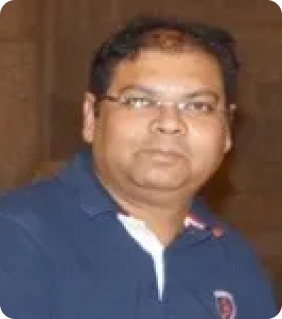 Dr. Vishal Massey
Dr. Vishal MasseyDr Vishal Massey holds a Doctor of Philosophy degree in Sociology, as well as a master’s degree in management and social work. Additionally, he is actively engaged in the field of Political Science as a student. He has more than 21 years of experience in research (qualitative and quantitative, academics and operations) and capacity development with technical expertise across disciplines. He focuses on strengthening government policies, monitoring and evaluation, gathering large databases, and analysing them in creative ways. He has experience in work with Government (NVDA/NVDD), UNICEF, Bilateral Agency-DANIDA.
He has written more than 13 research papers, more than 15 international reports, and is involved with a leading international think tank- The Club of Rome at the board level. Being an association with aboriginal roots, his main focus is on tribal development through technology transfer and research as well as empowering vulnerable communities in governance and policies.